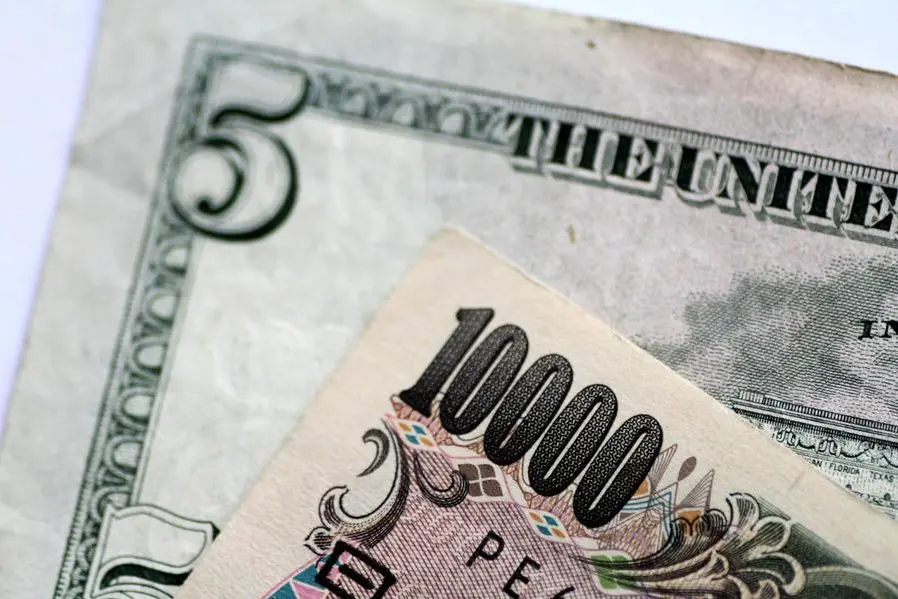PHOTO
The yen rose to a fresh five-week high against the dollar on Friday after reports the Bank of Japan is warming to the idea of raising interest rates and considering a new quantitative monetary policy framework.
Jiji news agency reported the BoJ is considering a framework that will show the outlook for upcoming government bond buying amounts.
Separately, Reuters reported a growing number of BoJ policymakers could support ending negative interest rates this month on expectations that this year's annual wage negotiations will yield strong results, four sources familiar with its thinking said.
The yen was 0.6% higher against the dollar at 147.18, after rising to 146.87 yen, its highest level since early February. It is up around 2% on the week, its strongest weekly percentage rise since mid-July, as policymakers have noted signs of a positive wage-price cycle sustaining inflation - setting the stage for Japan's first interest rate increase in 17 years.
"The yen is rising as speculation mounts that the BoJ will buck the global central bank trend and hike interest rates later this month," said Kathleen Brooks, research director at XTB.
"In the short term, a powerful downtrend seems to be building for USD/JPY, and we believe that this pair could test 145.00, especially if we see a moderation in U.S. payrolls growth later today," she added.
The dollar index was set for its sharpest weekly drop since mid-December ahead of U.S. payrolls data and after Federal Reserve Chair Jerome Powell sounded more confident about cutting interest rates in coming months.
Speaking on Thursday, Powell said the Fed was "not far" from having the confidence it needed to cut rates. Currencies typically weaken if central banks lower interest rates.
The dollar index edged 0.01% higher to 102.78, but was still heading for its sharpest one-week decline since mid-December, down around 1% this week against a basket of six peers.
The key data on Friday is the U.S. job report that could confirm or confound market expectations for a U.S. cut by June.
Economists expect the U.S. to have added a solid 200,000 jobs after January's blowout 353,000.
"A report this Friday in line with the 200k consensus for the non-farm payrolls increase would certainly keep the Fed in its holding pattern," said Padhraic Garvey, Regional Head of Research at ING.
"It (the data) will be instrumental in determining the direction of markets ahead, but it appears that rates markets have been setting themselves up for a much weaker figure."
ECB SPRING CUT
Weakening the euro against the dollar, there were signs that the European Central Bank's governing council had begun to discuss a suitable timeline for monetary policy easing.
The ECB kept rates at record highs of 4.00% on Thursday while cautiously laying the ground to lower them later this year, saying it had made good progress in bringing down inflation.
On Friday, ECB policymaker Francois Villeroy de Galhau said there was a strong consensus at the central bank that interest rates would be lowered this spring, adding that "spring is from April until June 21".
Other ECB policymakers - Olli Rehn and Robert Holzmann - lined up on Friday in support of an interest rate cut in the coming months.
The common currency fell 0.16% to $1.0931 after hitting an almost two-month high of $1.0956 during Asia trading hours, putting it back in the middle of a range it has kept for a year. It is up around 1% against the dollar for the week.
(Reporting by Joice Alves in London, additional reporting by Tom Westbrook in Singapore. Editing by Milla Nissi and Christina Fincher)





















